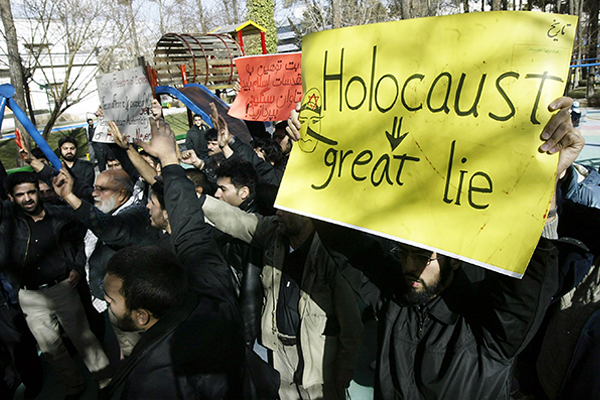
This sign is from a protest in Iran in 2006 by hardline Islamists protesting a Danish newspaper cartoon they perceived as an insult to the Prophet Mohammed. It is part of a pattern of denial, distortion, and other antisemitic activity around the world. Mohammad Kheirkhah/UPI/Newscom
As the Museum's hundreds of millions of archival documents attest, the Holocaust is the best documented case of genocide: The US military and allies collected firsthand evidence. Survivors and other eyewitnesses testified about their personal experiences. And the Nazis kept meticulous records.
Yet people always have attempted to distort the history or flat-out deny it, for a variety of reasons. Countries minimize or ignore the part played by local collaborators in order to rehabilitate their images. Deniers quickly spread misinformation through the power of social media. And as the history recedes in time, new generations are susceptible to the dangers of manipulation.
Speaker
Dr. Robert Williams, Deputy Director International Affairs, United States Holocaust Memorial Museum
Expert Commentary
Gideon Taylor, President, Claims Conference (Conference on Jewish Material Claims Against Germany)
Moderator
Dr. Edna Friedberg, Historian, United States Holocaust Memorial Museum
Watch live at facebook.com/holocaustmuseum. You do not need a Facebook account to view our program. After the live broadcast, the recording will be available to watch on demand on the Museum's Facebook page.
